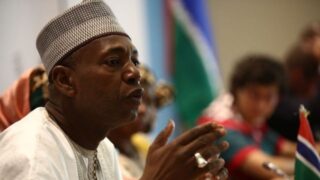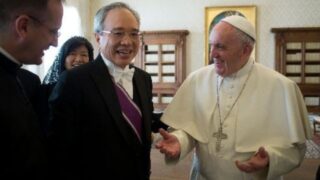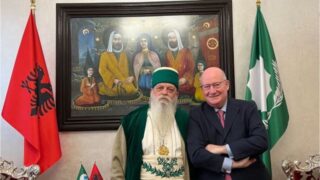The court stated that offering alternative Protestant, Buddhist, Catholic, or Won Buddhist services discriminates against other believers, and non-believers.
by Massimo Introvigne


The full text of South Korea’s Constitutional Court decision of November 24, 2022, on mandatory prayer requirements in the Army has now been made available, including in English.
The case concerned five trainees of the national Korean Army Training Center. On Sunday June 2, 2019, they were asked by their squad commander to “Choose and attend one of the religious ceremonies held in the Korea Army Training Center––Protestant, Buddhist, Catholic, or Won Buddhist” [Won Buddhism is a Korean new religion not generally regarded as part of mainline Buddhism]. The five recruits answered that they did not have any religion and did not want to attend any of the services. The squad commander told them, “Even though you don’t have a religion, try attending it once as an experiment. If your mind doesn’t change after reconsideration, come by again to explicitly express your desire not to attend.”
The trainees had to attend a service, at least that Sunday, but sued the Army Training Center on August 23 before the Constitutional Court, claiming violation of their freedom of belief and of the principle of separation of church and state. The Constitutional Court found the case difficult enough to issue a 6-3 opinion. The three dissenting justices would have found in favor of the Army Training Center, arguing that, while it might have been true that it would be difficult for trainees to reject what they perceived as an order by their squad commander, the latter asked them to try a religious service “only once” and did not clearly say this was mandatory.
The majority, however, found against the Army Training Center. Not only did it consider that the fact that suggesting or ordering that recruits should attend religious services on Sunday discriminated against atheists. It also found that offering services of only four religions while hundreds exist in Korea creates an unjustified privilege for them.
“The requiring by Respondent [the Army Training Center] of Complainants’ attendance at either a Protestant, Buddhist, Catholic, or Won Buddhist ceremony, the court concluded, demonstrates that Respondent officially acknowledged and encouraged the four religions and preferred them to other religions or irreligion. The Court notes in this connection that the constitutional principle of the separation of religion and politics serves the purpose of guaranteeing the diversity laying the foundation of a democratic society. In the context of this principle, the State maintains a neutral position, acknowledging the possibility of eclectic religious convictions, atheism, etc. The conduct of Respondent cannot be permitted under the principle of separation of religion and politics as it amounts to favorable treatment of particular religions in violation of State neutrality to religion.”









